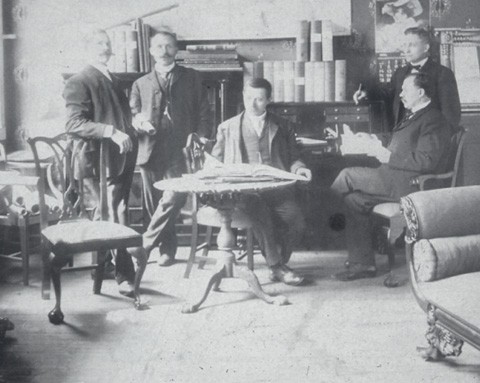
Photograph showing the interior of the Potthast shop with (left to right) William, Vincent, Theodore, and John Potthast and their accountant (standing), Baltimore, Maryland, ca. 1903. (Courtesy, Potthast family collection.)
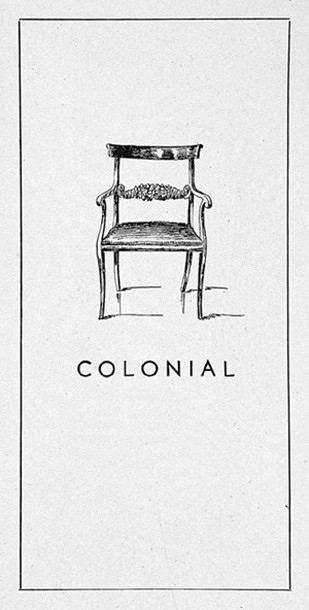
Potthast Bros., Inc., brochure titled “Colonial,” Baltimore, Maryland, ca. 1930. (Private collection.)
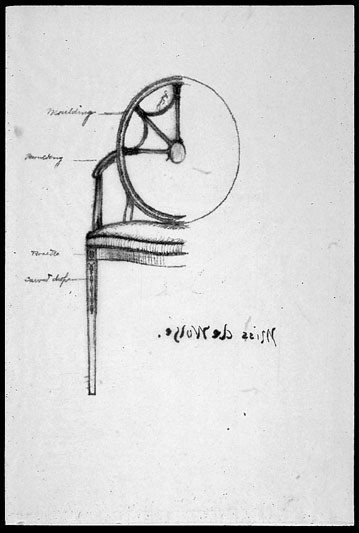
Potthast Bros., Inc., sketch for a chair inscribed “Miss de Wolfe,” Potthast letterbook, 1907, p. 305. (Courtesy, Potthast family collection.)
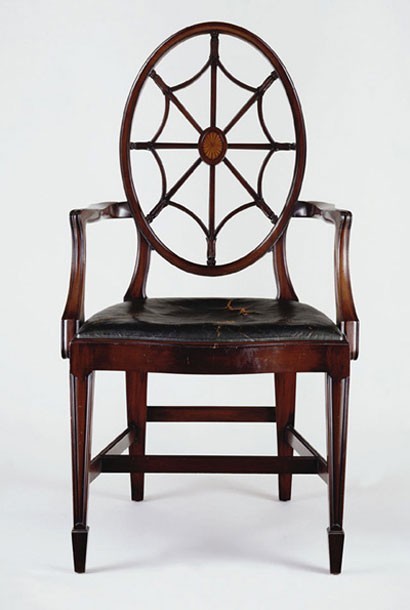
Potthast Bros., Inc., “Huntmaster’s chair,” Baltimore, Maryland, ca. 1917. Mahogany and lightwood inlay with oak. H. 51 1/2", W. 27 1/2", D. 23". (Private collection; photo, Gavin Ashworth.)

Detail of the back of the “Huntmaster’s chair” illustrated in fig. 4.
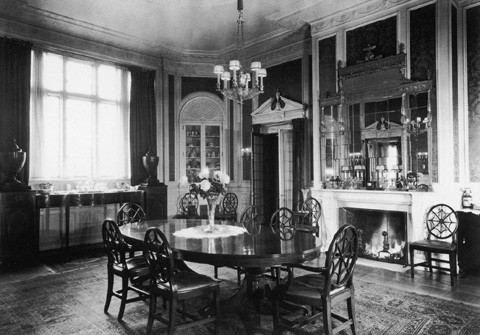
Photograph showing the suite of Potthast furniture commissioned for Pleasant Hill, Baltimore, Maryland, ca. 1920. (Private collection.)
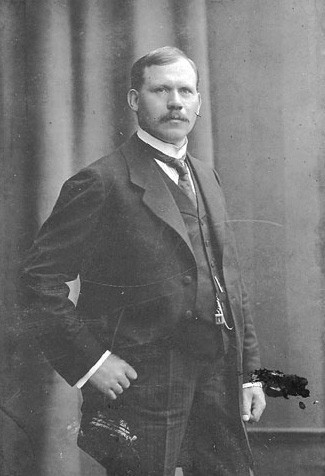
Photograph of William Potthast, Baltimore, Maryland, ca. 1900. (Courtesy, Potthast family collection.)
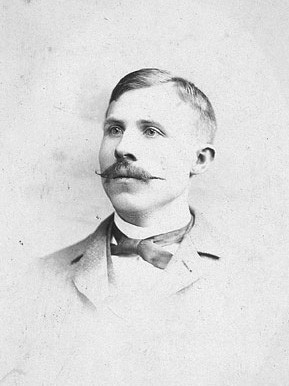
Photograph of Vincent Potthast, Baltimore, Maryland, ca. 1900. (Courtesy, Potthast family collection.)
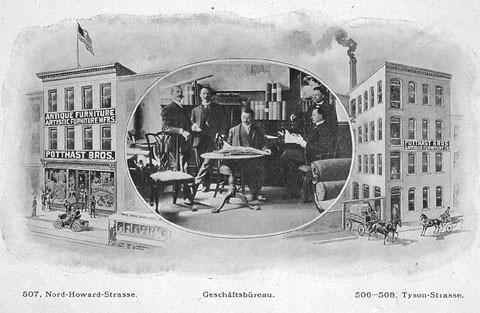
Lithograph showing Potthast Bros., Inc.’s shop at 507 North Howard Street and factory at 506–508 Tyson Street. The photograph of this image is taken from Das Neue Baltimore (1905).
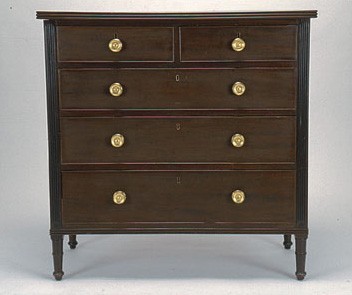
Chest of drawers attributed to William Camp, Baltimore, Maryland, ca. 1820. Mahogany with tulip poplar and yellow pine. H. 41", W. 40 1/2", D. 21 1/4". The Potthasts repaired and labeled this chest about 1903. (Private collection.)
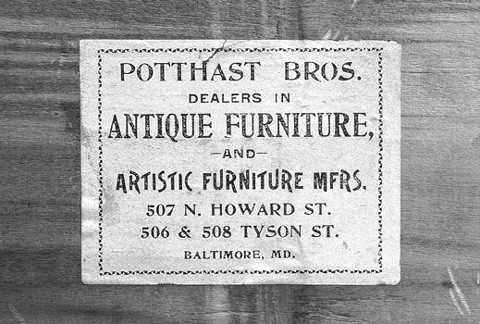
Detail showing the label on the chest illustrated in fig. 10.
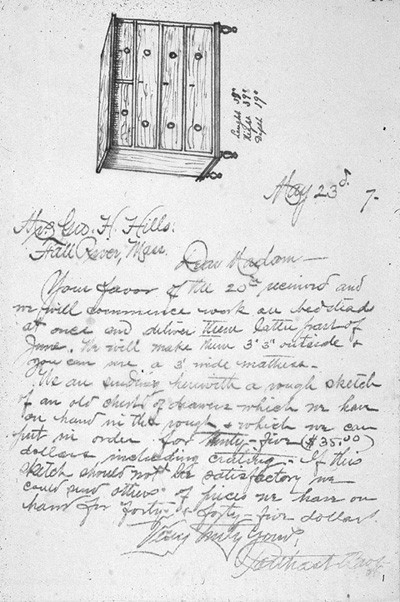
Potthast Bros., Inc., sketch of a chest submitted to Mrs. Geo. Hills, Fall River, Massachusetts, May 23, 1907. This sketch, which resembles the chest illustrated in fig. 10, is in Potthast letterbook, 1907. (Courtesy, Potthast family collection.)
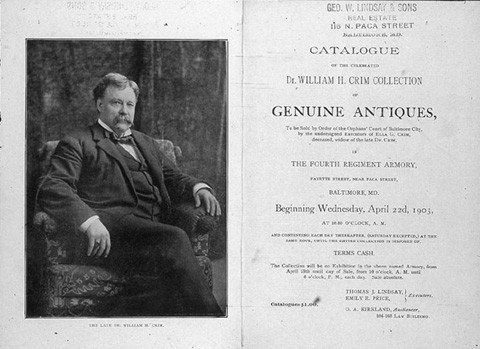
Title page from O. A. Kirkland Auctioneer, Catalogue of the Celebrated Dr. William H. Crim Collection of Genuine Antiques, Baltimore, Maryland, 1903. (Private collection.)
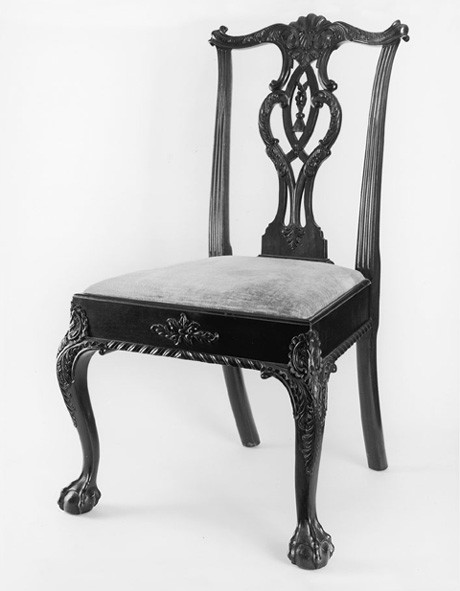
Potthast Bros., Inc., reproduction “Crim chair,” Baltimore, Maryland, ca. 1930. Mahogany with oak. H. 40 1/4", W. 24", D. 17 3/4". (Private collection; photo, Gavin Ashworth.)
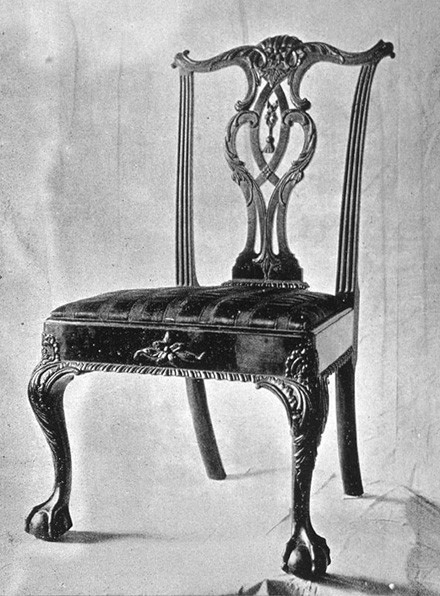
Philadelphia side chair illustrated as lot 231 in O. A. Kirkland Auctioneer, Catalogue of the Celebrated Dr. William H. Crim Collection of Genuine Antiques, Baltimore, Maryland, 1903. (Private collection.)
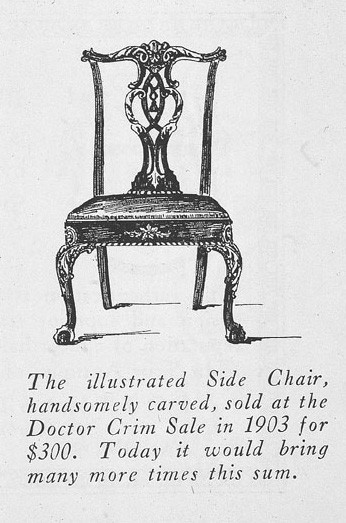
Illustration of a reproduction “Side Chair, handsomely carved, sold at the Dr. Crim Sale” in Potthast Bros., Inc., “Interesting Facts: Inside Secrets of Selecting Furniture Correctly,” Baltimore, Maryland, 1935.
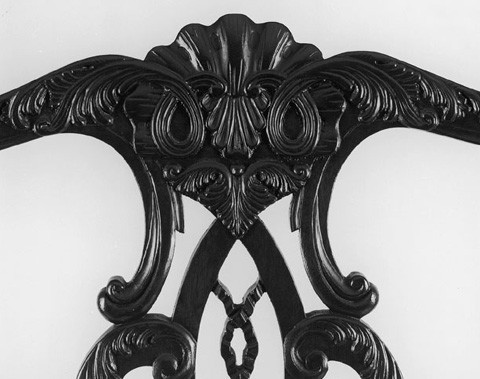
Detail of the carving on the back of the side chair illustrated in fig. 14. (Photo, Gavin Ashworth.)
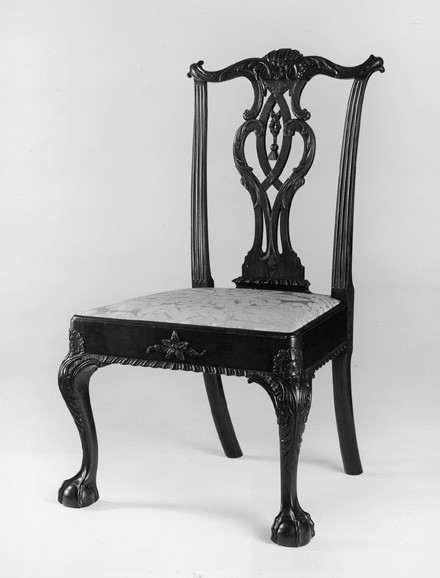
Side chair, Philadelphia, Pennsylvania, ca. 1750. Mahogany with pine. H. 39", W. 24", D. 22 1/2". (Chipstone Foundation; photo, Gavin Ashworth.) This chair sold as lot 231 in O. A. Kirkland Auctioneer, Catalogue of the Celebrated Dr. William H. Crim Collection of Genuine Antiques, Baltimore, Maryland, 1903.
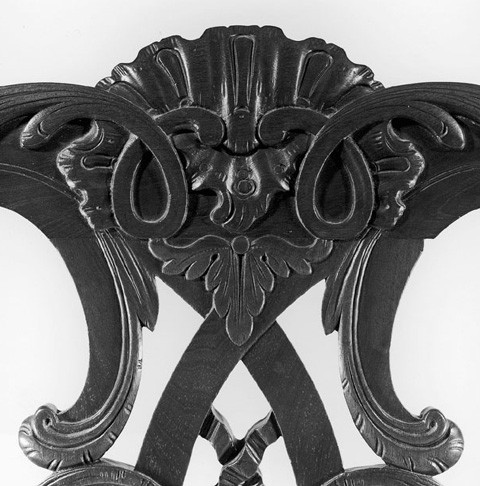
Detail of the carving on the back of the side chair shown in fig. 18.
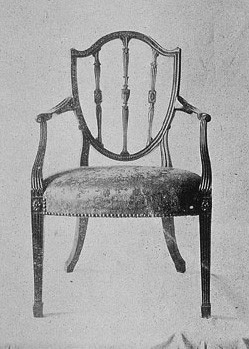
Armchair illustrated as lot 774 in O. A. Kirkland Auctioneer, Catalogue of the Celebrated Dr. William H. Crim Collection of Genuine Antiques, Baltimore, Maryland, 1903. (Private collection.) This armchair is one of eight that reputedly belonged to Francis Scott Key.
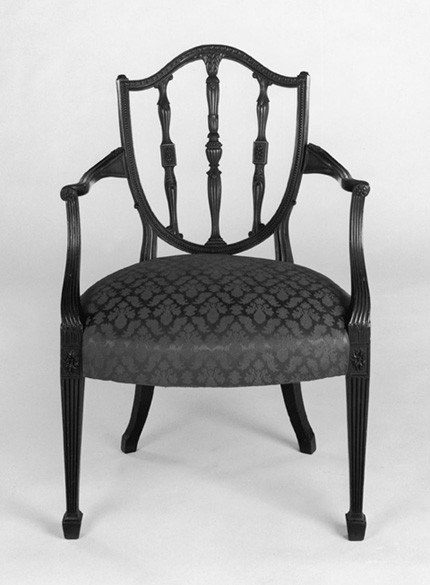
Potthast Bros., Inc., reproduction “Key chair,” Baltimore, Maryland, ca. 1910. Mahogany with oak. H. 36 3/4", W. 23 3/4", D. 20 1/4". (Courtesy, Maryland Historical Society, Baltimore, Maryland.)
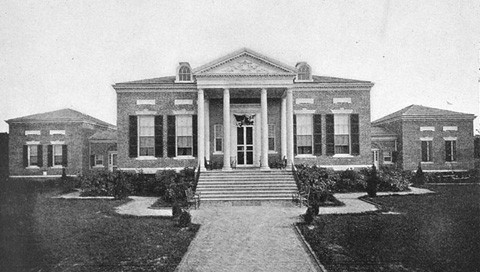
Photograph of the Maryland Building in the 1907 Tercentennial Exposition in Norfolk, Virginia, illustrated in Report of the Maryland Commission to the Jamestown Ter-Centennial Exposition (1908).
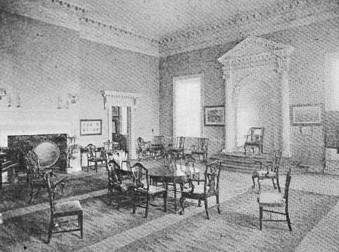
Photograph showing the “Senate Chamber” of the Maryland Building in the 1907 Tercentennial Exposition in Norfolk, Virginia, illustrated in Report of the Maryland Commission to the Jamestown Ter-Centennial Exposition (1908).
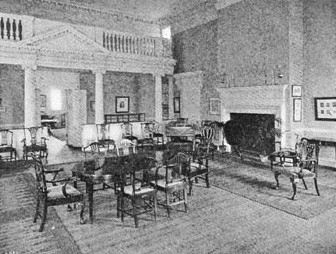
Photograph showing the “Senate Chamber” of the Maryland Building in the 1907 Tercentennial Exposition in Norfolk, Virginia, illustrated in Report of the Maryland Commission to the Jamestown Ter-Centennial Exposition (1908).
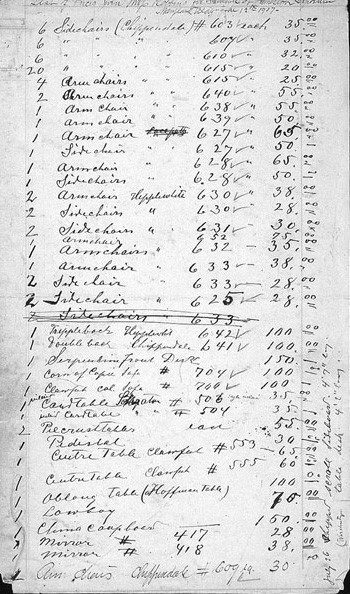
Inventory of objects loaned by Potthast Bros., Inc., for the Maryland Building in the 1907 Tercentennial Exposition in Norfolk, Virginia. (Courtesy, Potthast family collection.) The inventory is in Potthast letterbook, 1907.
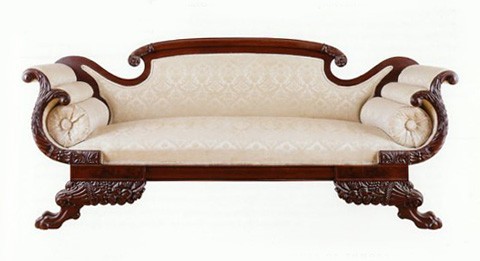
Potthast Bros., Inc., “Jamestown” sofa, Baltimore, Maryland, ca. 1906–1907. Mahogany with oak. H. 35 1/2", W. 79", D. 27 3/4". (Private collection; photo, Gavin Ashworth.)
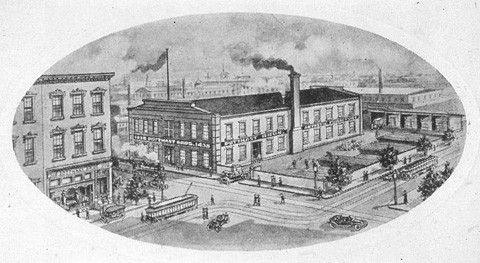
Lithograph composite view of the Potthast shop at 702 North Howard Street and the Wicomico Street factory illustrated on the back cover of the firm’s brochure titled “The Dining Room Beautiful,” Baltimore, Maryland, ca. 1922. Potthast Bros., Inc., began to specialize in dining-room furniture by the mid-1920s. Advertisements and surviving objects suggest that tables, chairs, and sideboards constituted the bulk of the firm’s manufacturing work.
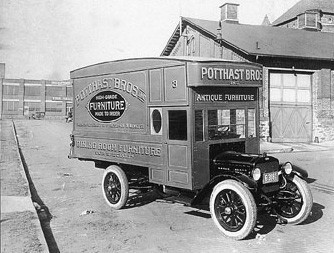
Photograph showing part of Potthast Bros., Inc.’s Wicomico Street factory with a delivery truck in the foreground, Baltimore, Maryland, ca. 1925. The vehicle is painted with a variety of slogans and catchwords including “Dining Room Furniture Our Specialty” and “Antique Furniture.”
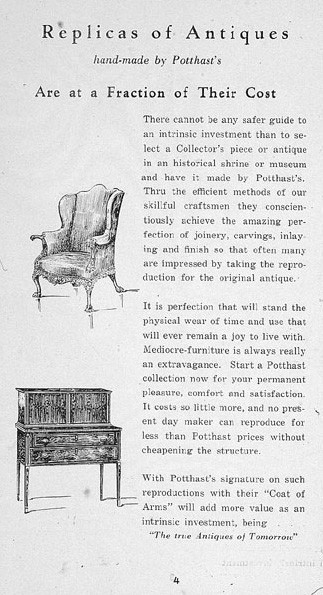
Illustration from Potthast Bros., Inc., “Reproductions That Are An Investment,” Baltimore, Maryland, ca. 1930.
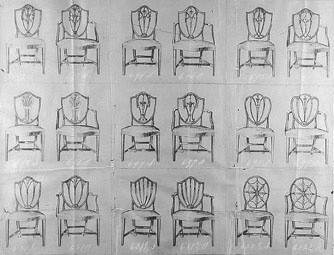
Potthast Bros., Inc., chair designs with identification numbers, Baltimore, Maryland, ca. 1910. (Courtesy, Potthast family collection.) This page of chair designs was found among a group of photographs and shop drawings. Such materials may have been used as a reference for both patrons and workmen.
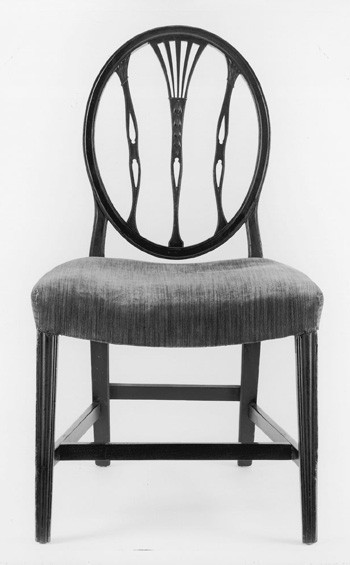
Side chair, Baltimore, Maryland, 1790–1810. Mahogany with tulip poplar. H. 37 1/4", W. 20 1/2", D. 16 3/4". (Private collection; photo, Gavin Ashworth.) This chair is part of a set originally owned by Charles Carroll of Homewood.
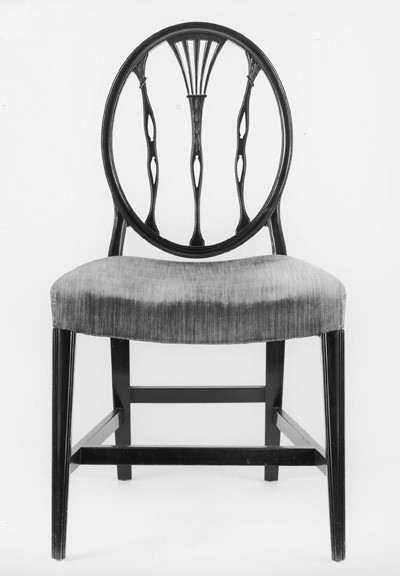
Potthast Bros., Inc., side chair, Baltimore, Maryland, ca. 1930. Mahogany with oak. H. 38", W. 20", D. 17". (Private collection; photo, Gavin Ashworth.)
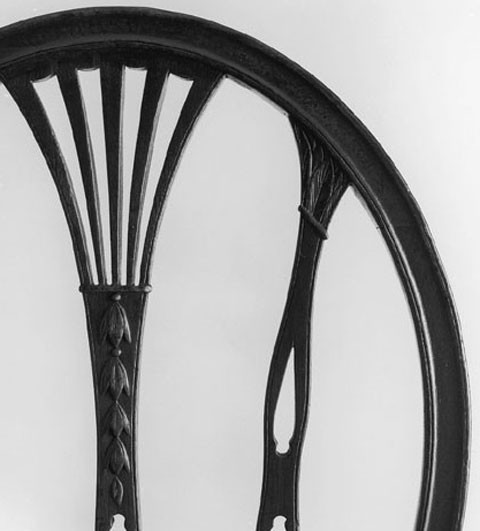
Detail of the carved husks on the back of the side chair illustrated in fig. 31. (Photo, Gavin Ashworth.)
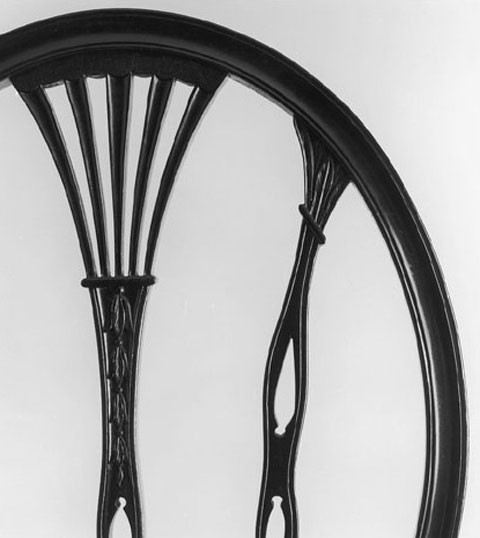
Detail of the carved husks on the back of the side chair illustrated in fig. 32. (Photo, Gavin Ashworth.)
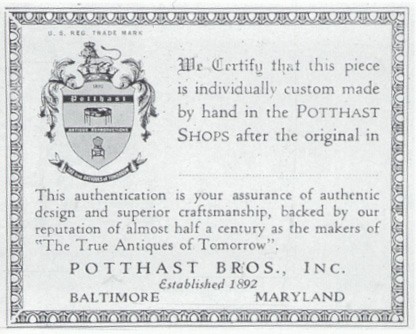
Potthast Bros., Inc., label for “Authenticated Replicas.”
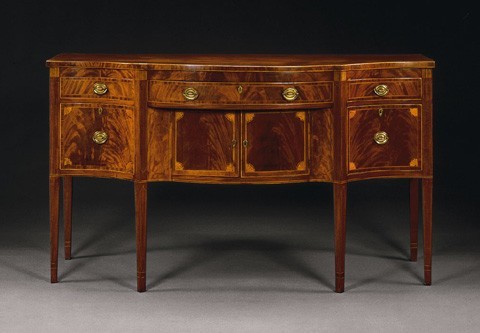
Sideboard, New York, 1790–1810. Mahogany with unrecorded secondary woods.
H. 41 1/2", W . 72 3/4", D. 28 3/4". (Courtesy, Christie’s.)
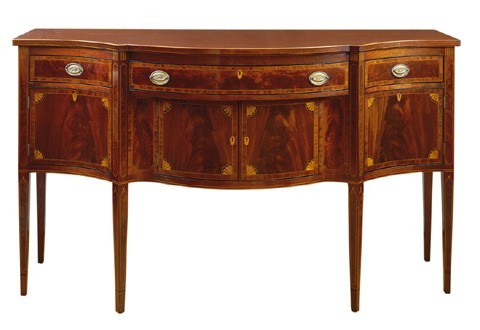
Potthast Bros., Inc., “Metropolitan” sideboard, Baltimore, Maryland, ca. 1940. Mahogany with oak. H. 40 1/2", W. 72", D. 24". (Private collection; photo, Gavin Ashworth.)
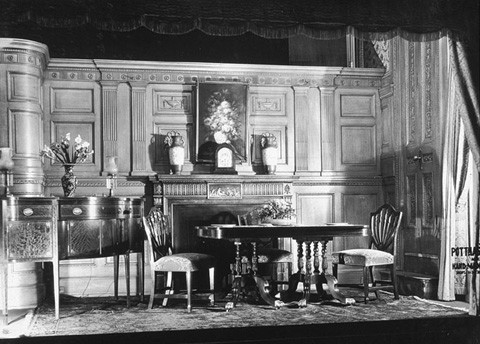
Photograph showing the “Metropolitan” window display at the Potthast Bros., Inc., store at 924 North Charles Street, Baltimore, Maryland, ca. 1930. (Potthast family collection; photo, Harry B. Leopold.)
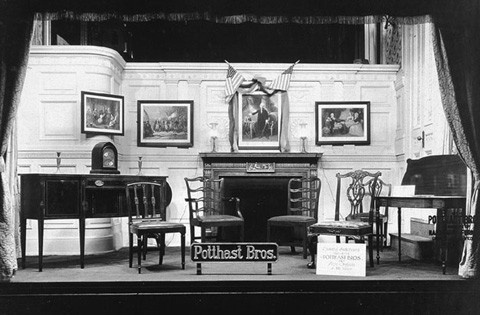
Photograph showing the “Mount Vernon” window display at the Potthast Bros., Inc., store at 924 North Charles Street, Baltimore, Maryland, ca. 1930. This display may have been constructed in Febuary 1930 to commemorate Washington’s birthday. (Potthast family collection; photo, Harry B. Leopold.)
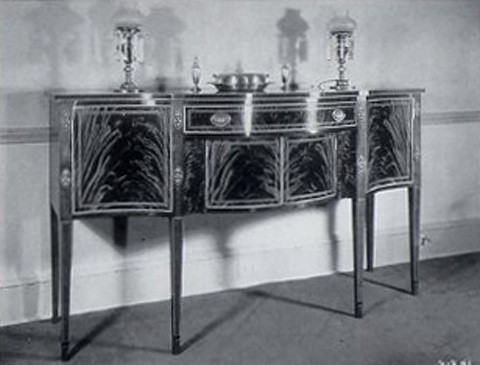
Potthast Bros., Inc., “Mount Vernon” sideboard, Baltimore, Maryland, ca. 1940. Mahogany and mahogany veneer with unidentified secondary woods. (Courtesy, Potthast family collection.)
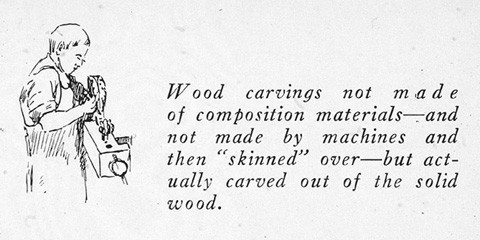
Drawing showing a chair leg being carved, in Potthast Bros., Inc., “Interesting Facts: Inside Secrets of Selecting Furniture Correctly,” Baltimore, Maryland, 1935.
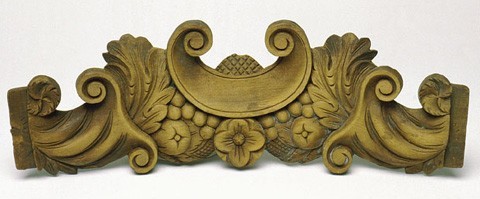
Potthast Bros., Inc., carved rail from an unfinished “Duncan Phyfe” chair, Baltimore, Maryland, ca. 1940. Mahogany. Dimensions not recorded. (Potthast family collection.)
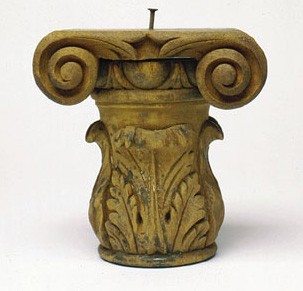
Potthast Bros., Inc., carved capital from an unfinished “colonial” chest of drawers, Baltimore, Maryland, ca. 1940. Mahogany. Dimensions not recorded. (Potthast family collection.)
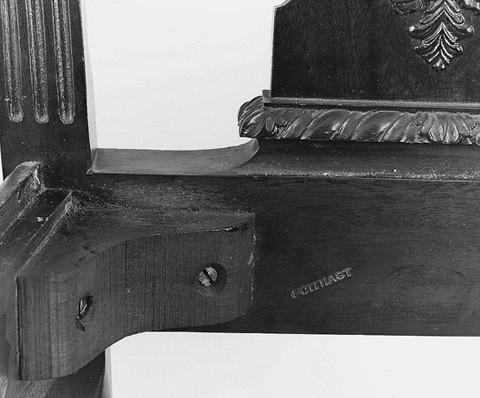
Detail of a corner block and brands on the side chair illustrated in fig. 14. (Photo, Gavin Ashworth.)
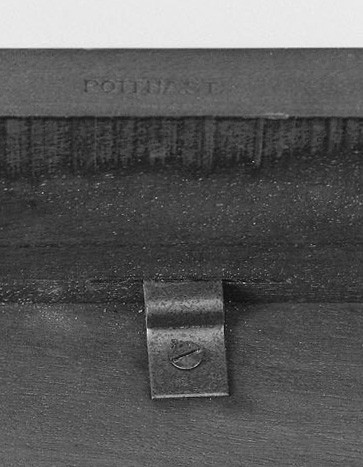
Detail of a top fastener used by Potthast Bros., Inc. (Photo, Gavin Ashworth.)
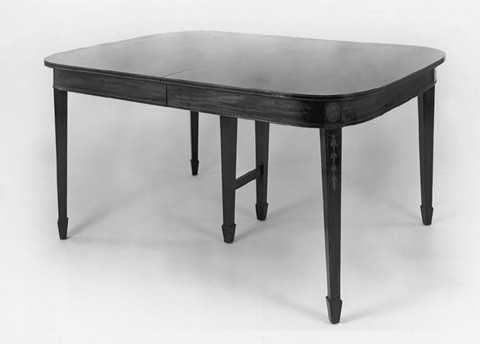
Potthast Bros., Inc., dining table, Baltimore, Maryland, ca. 1930. Mahogany with tulip poplar and oak. H. 29 3/4", W. 60" (without extra leaves), D. 44 1/4". (Courtesy, Maryland Historical Society, Baltimore, Maryland.)
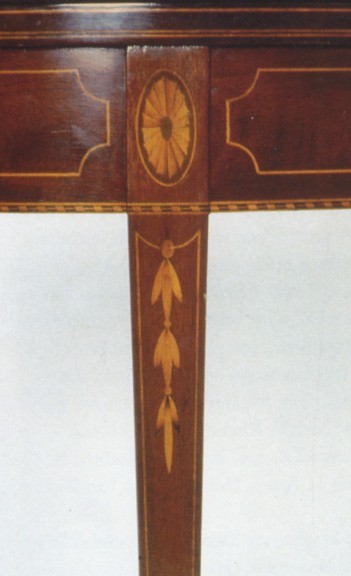
Detail of the inlay on a card table by Potthast Bros., Inc., Baltimore, Maryland, ca. 1930. (Courtesy, Maryland Historical Society, Baltimore, Maryland.)
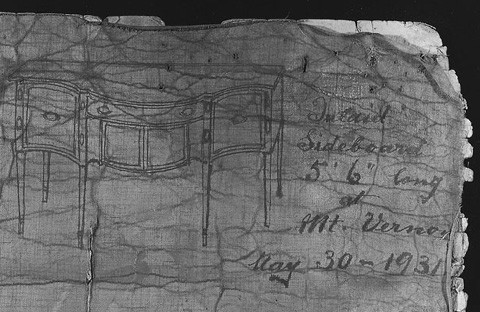
Potthast Bros., Inc., working drawings for the “Mount Vernon” sideboard, Baltimore, Maryland, 1931. (Courtesy, Potthast family collection.)
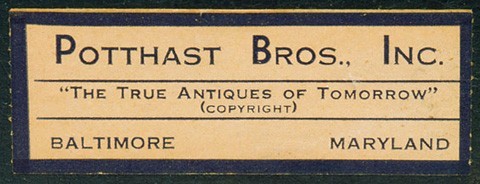
Potthast Bros., Inc., label, Baltimore, Maryland, 1930–1940.
